
The Enchanting Waters of Bayou Teche, Louisiana
Nestled in the heart of Louisiana, Bayou Teche is a winding waterway that flows through the lush landscapes of the region. Known for its rich history and cultural significance, Bayou Teche offers visitors a unique glimpse into the charm of southern life. The bayou stretches for 125 miles, passing through picturesque towns like Breaux Bridge, New Iberia, and St. Martinville, each with its own unique attractions and stories to tell. Exploring Bayou Teche is like stepping back in time. The bayou was once a major transportation route for Native Americans and later became a vital waterway for French settlers. Today, it remains a vital part of local life, offering opportunities for boating, fishing, and wildlife watching. The area is home to a diverse array of flora and fauna, including majestic cypress trees draped with Spanish moss and a variety of bird species. Paddling down the bayou in a canoe or kayak is a serene experience, allowing visitors to fully immerse themselves in the natural beauty of the region. Food lovers will delight in the culinary offerings along Bayou Teche. The region is known for its delicious Cajun and Creole cuisine, with many local restaurants serving up mouth-watering dishes like gumbo, jambalaya, and crawfish étouffée. Don't miss the opportunity to enjoy a meal at one of the many charming eateries that dot the bayou's banks. Additionally, Bayou Teche is home to several festivals throughout the year, celebrating everything from local music to seafood, providing a lively and festive atmosphere for visitors.
Local tips in Bayou Teche
- Visit during spring or fall for the best weather and fewer mosquitoes.
- Bring insect repellent and sunscreen to stay comfortable while exploring the bayou.
- Explore the bayou by kayak or canoe for a peaceful and immersive experience.
- Try local dishes like gumbo and crawfish étouffée at nearby restaurants.
- Check the local events calendar for festivals and cultural events during your visit.
The Enchanting Waters of Bayou Teche, Louisiana
Nestled in the heart of Louisiana, Bayou Teche is a winding waterway that flows through the lush landscapes of the region. Known for its rich history and cultural significance, Bayou Teche offers visitors a unique glimpse into the charm of southern life. The bayou stretches for 125 miles, passing through picturesque towns like Breaux Bridge, New Iberia, and St. Martinville, each with its own unique attractions and stories to tell. Exploring Bayou Teche is like stepping back in time. The bayou was once a major transportation route for Native Americans and later became a vital waterway for French settlers. Today, it remains a vital part of local life, offering opportunities for boating, fishing, and wildlife watching. The area is home to a diverse array of flora and fauna, including majestic cypress trees draped with Spanish moss and a variety of bird species. Paddling down the bayou in a canoe or kayak is a serene experience, allowing visitors to fully immerse themselves in the natural beauty of the region. Food lovers will delight in the culinary offerings along Bayou Teche. The region is known for its delicious Cajun and Creole cuisine, with many local restaurants serving up mouth-watering dishes like gumbo, jambalaya, and crawfish étouffée. Don't miss the opportunity to enjoy a meal at one of the many charming eateries that dot the bayou's banks. Additionally, Bayou Teche is home to several festivals throughout the year, celebrating everything from local music to seafood, providing a lively and festive atmosphere for visitors.
When is the best time to go to Bayou Teche?
Unmissable attractions to see
TABASCO Factory Tours
Explore the origins of TABASCO sauce at Avery Island, where history, flavor, and fun come together in a unique factory tour experience.
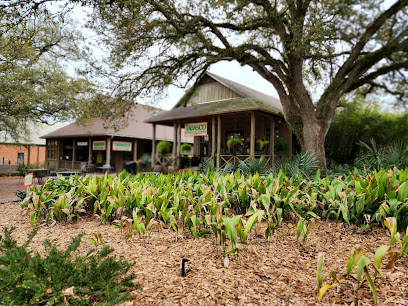
Jungle Gardens
Immerse yourself in the lush landscapes and rich biodiversity of Jungle Gardens, a breathtaking botanical haven on Avery Island, Louisiana.
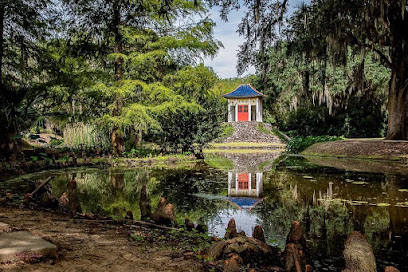
Zoosiana
Explore Zoosiana in Broussard, Louisiana, where diverse wildlife and interactive experiences create unforgettable family adventures.
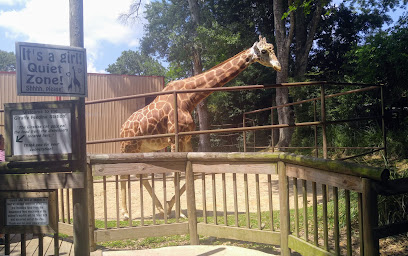
Vermilionville Historic Village
Experience the rich history and vibrant culture of Louisiana at Vermilionville Historic Village, a living museum celebrating Acadian and Native American heritage.
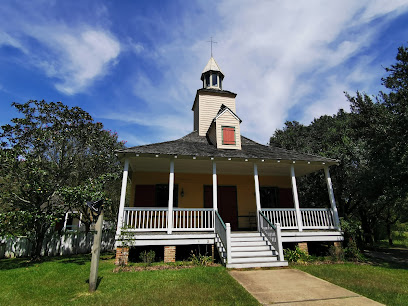
LARC's Acadian Village
Explore the rich heritage of Louisiana's Acadian culture at LARC's Acadian Village, a captivating cultural center in Lafayette.
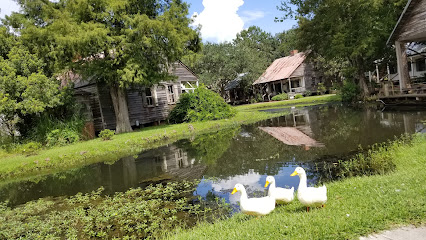
New Iberia City Park
Discover the vibrant beauty and recreational charm of New Iberia City Park, a perfect escape for nature lovers and families exploring Louisiana.
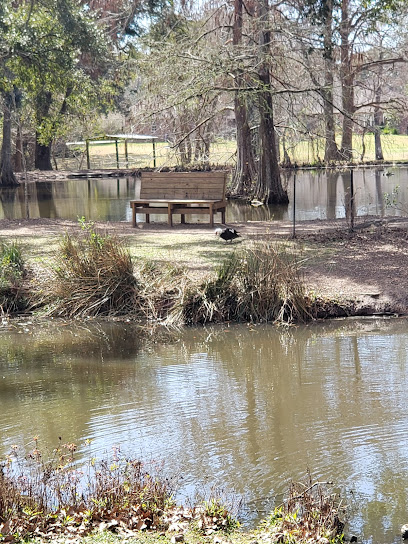
Atchafalaya Basin Landing Airboat Swamp Tours
Discover Louisiana's stunning wetlands with thrilling airboat tours at Atchafalaya Basin Landing, where adventure and nature meet.
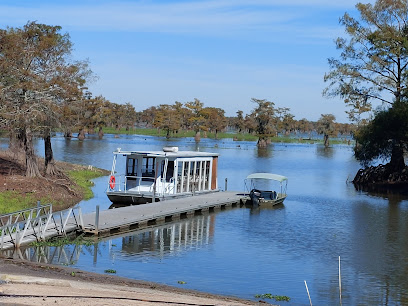
McGee's Louisiana Swamp & Airboat Tours
Discover Louisiana's wild side with McGee's Airboat Tours, where adventure meets nature in the heart of the swamp.
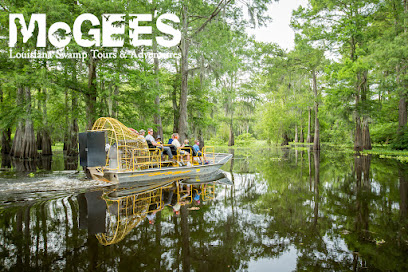
Cajun Country Swamp Tours
Experience the breathtaking beauty and wildlife of Louisiana's swamps with Cajun Country Swamp Tours—an unforgettable adventure awaits!
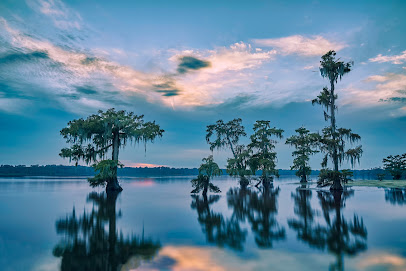
Atchafalaya National Wildlife Refuge
Immerse yourself in the natural beauty and vibrant wildlife of Atchafalaya National Wildlife Refuge, a premier destination for nature lovers in Louisiana.
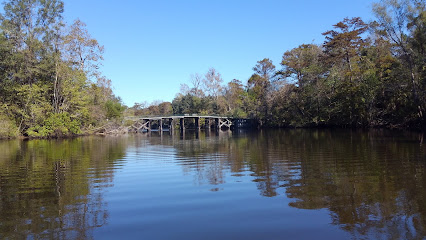
TABASCO
Experience the rich history and flavorful journey of Tabasco sauce on Avery Island, Louisiana, a must-visit for food enthusiasts and culture lovers.
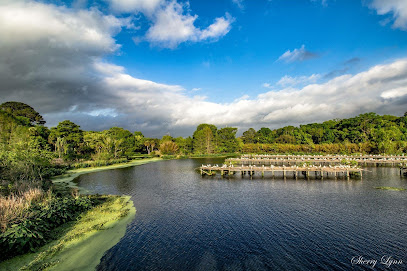
Louisiana Swamp Tours
Experience the beauty and wildlife of Louisiana's swamps through unforgettable boat tours, capturing nature's essence in every ride.
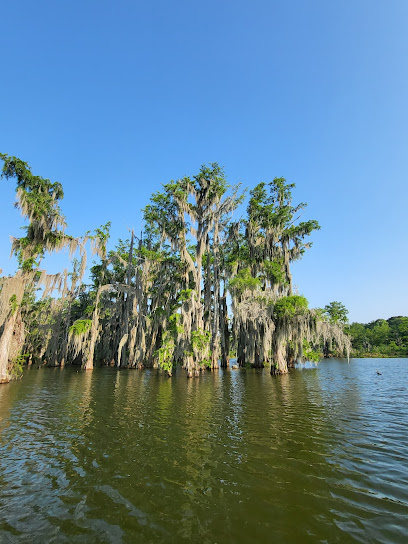
Rip Van Winkle Gardens
Explore the serene beauty of Rip Van Winkle Gardens, a botanical paradise in Louisiana, perfect for relaxation, events, and memorable experiences.
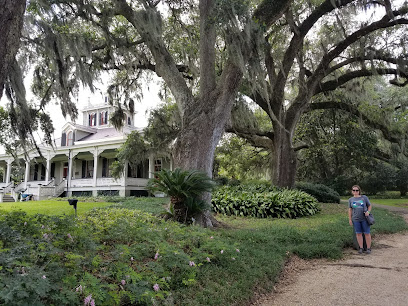
Prehistoric Park
Explore the thrilling world of dinosaurs at Prehistoric Park, a family-friendly amusement center in Henderson, Louisiana, perfect for kids and adults alike.
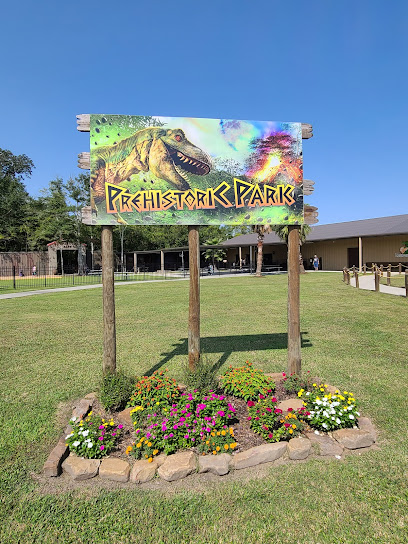
Lake Fausse Pointe State Park
Explore Lake Fausse Pointe State Park: a serene Louisiana retreat for camping, hiking, and canoeing amidst stunning landscapes and rich wildlife.
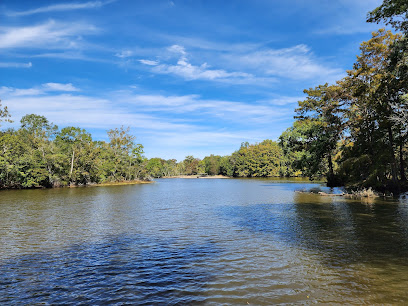
Essential places to dine
Buck & Johnny's: Eclectic Italian with a Cajun Flair
Experience the best of Italian and Cajun cuisine at Buck & Johnny's in Breaux Bridge—where every dish tells a story.
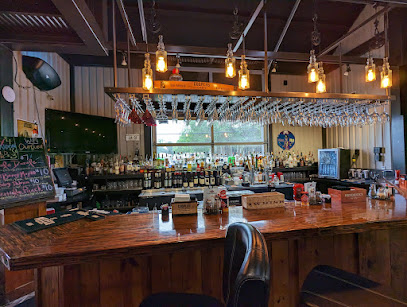
Wendy's
Experience delicious fast food with a local twist at Wendy's in Breaux Bridge, Louisiana - where quality meets convenience.
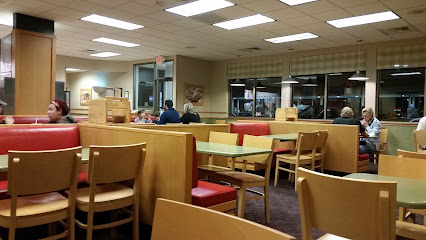
Taco Bell
Experience flavorful fast food at Taco Bell in Breaux Bridge - your go-to spot for tacos, burritos, and more!
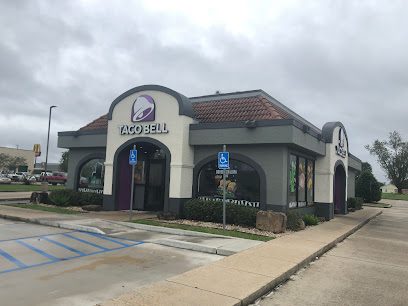
Checkers
Experience classic American fast food at Checkers in Breaux Bridge – where every bite brings joy!

Subway
Experience fresh and customizable sandwiches at Subway in Breaux Bridge—perfect for tourists seeking quick and delicious meals.
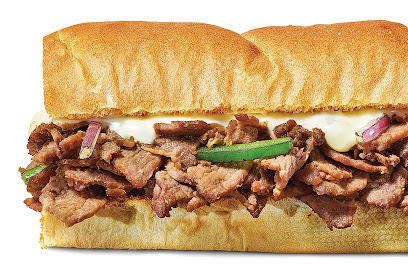
Markets, malls and hidden boutiques
Vermilionville Historic Village
Experience the vibrant culture and history of Louisiana at Vermilionville Historic Village, a living museum showcasing Acadian and Creole heritage.
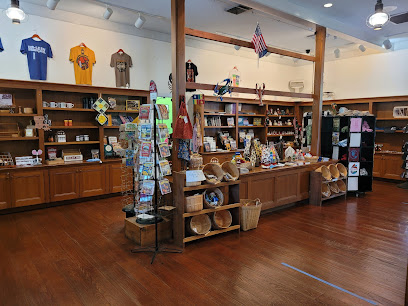
McGee's Louisiana Swamp & Airboat Tours
Discover the wild beauty of Louisiana's swamps with McGee's Airboat Tours, where thrilling adventures and rich wildlife await!
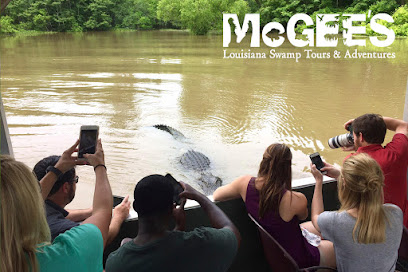
Bayou Teche Brewing
Experience the craft of Louisiana brewing at Bayou Teche Brewing, where beer meets culture in a vibrant, welcoming atmosphere.
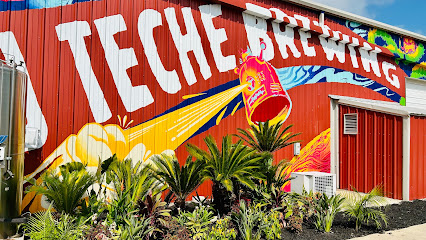
Bayou Art Co-op
Explore unique handmade crafts and local artistry at Bayou Art Co-op, Lafayette's vibrant craft store and clothing boutique.
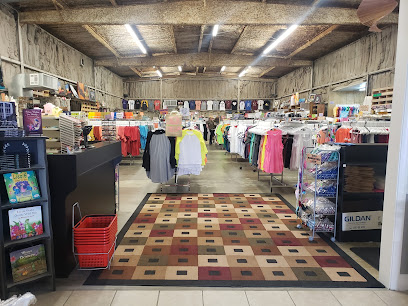
Louisiana Marketshops at the 115
Explore the Louisiana Marketshops at the 115 for unique gifts and local artisan crafts that capture the heart of Louisiana's culture.
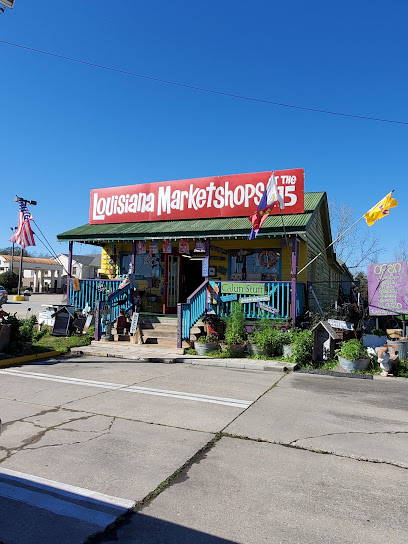
Lagniappe Antique Etc
Explore Lagniappe Antique Etc, a treasure trove of unique antiques, collectibles, and art in Breaux Bridge, Louisiana, celebrating the charm of the past.
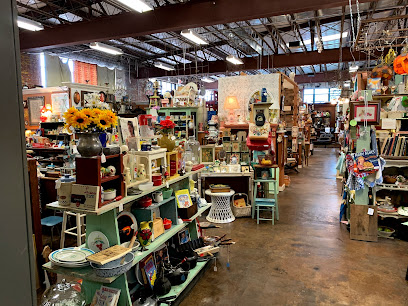
Bayou Teche National Wildlife Refuge - Garden City Unit
Discover the breathtaking beauty and diverse wildlife of Bayou Teche National Wildlife Refuge in Louisiana, an ideal destination for nature lovers and outdoor adventures.
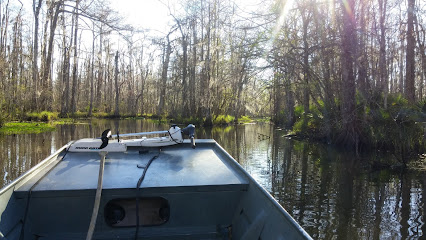
Bayou Belle Boutique
Explore the enchanting Bayou Belle Boutique in Denham Springs for unique gifts and local treasures that celebrate Louisiana's vibrant culture.

Cane River Pecan Company
Explore the flavors of Louisiana at Cane River Pecan Company, your go-to destination for gourmet pecans, unique gifts, and a delightful café experience.
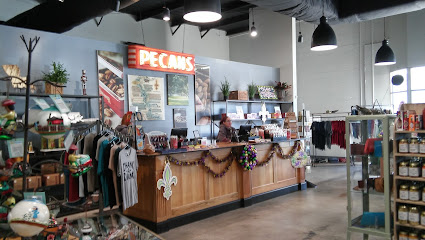
Louisiana Hot Stuff
Discover the essence of Louisiana with unique gifts and local sportswear at Louisiana Hot Stuff, Lafayette's charming gift shop.
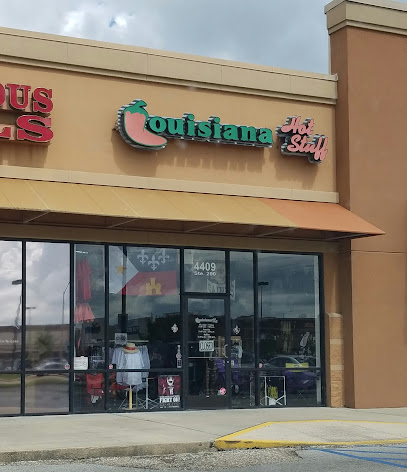
Bayou Teche Guns
Explore unique firearms and accessories at Bayou Teche Guns in Arnaudville, Louisiana, where expert guidance meets a welcoming atmosphere.
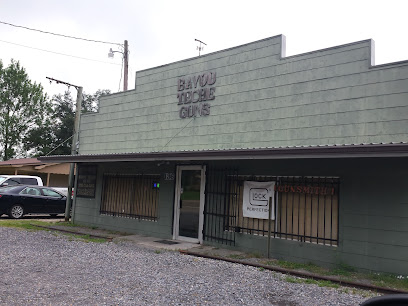
All About You
Discover unique clothing and gifts at All About You, the premier boutique in New Iberia, Louisiana, where local charm meets personalized shopping.
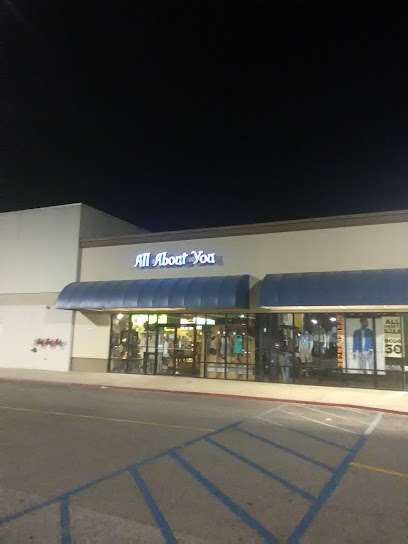
Konriko Co Store
Explore the essence of Louisiana at Konriko Co Store, where local flavors and unique gifts await in the heart of New Iberia.
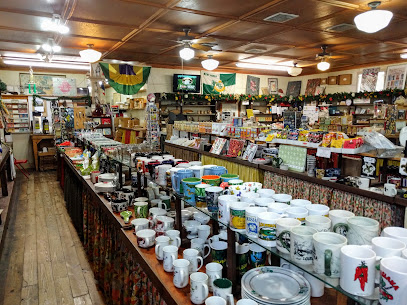
Bayou Some Stuff
Explore the vibrant thrift store scene at Bayou Some Stuff in Sunset, Louisiana, where unique treasures await every visitor.
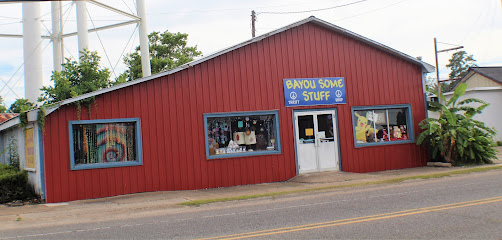
Alumni Shop For Him & Her
Explore the trendy Alumni Shop in Morgan City, Louisiana, offering stylish apparel and unique gifts for every occasion.
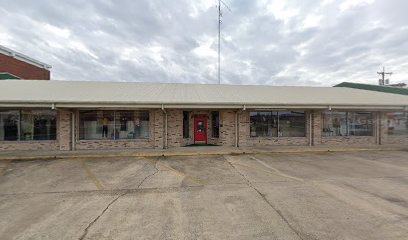
Essential bars & hidden hideouts
Buck & Johnny's: Eclectic Italian with a Cajun Flair
Explore the unique culinary fusion of Italian and Cajun flavors at Buck & Johnny's in Breaux Bridge, Louisiana.
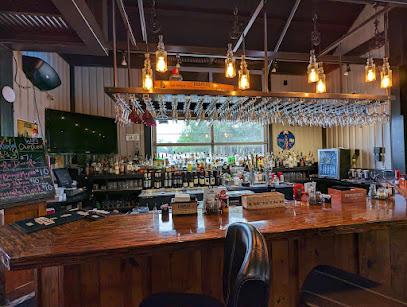
Bayou Teche Brewing
Experience the vibrant flavors of Louisiana at Bayou Teche Brewing, where craft beer meets delicious local cuisine in a lively atmosphere.
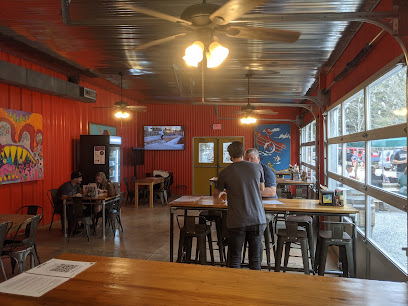
New Orleans Original Daiquiris
Experience the vibrant cocktail culture of Louisiana at New Orleans Original Daiquiris, where every sip is a taste of the Big Easy.
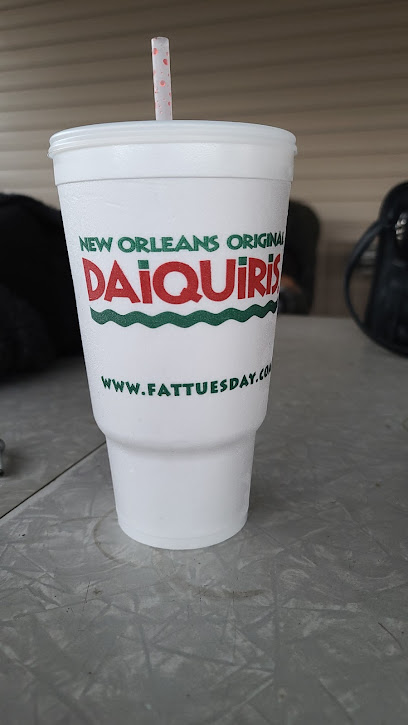
Quarter Tavern
Experience the vibrant atmosphere and friendly service at Quarter Tavern, New Iberia's go-to bar for great drinks and lively entertainment.
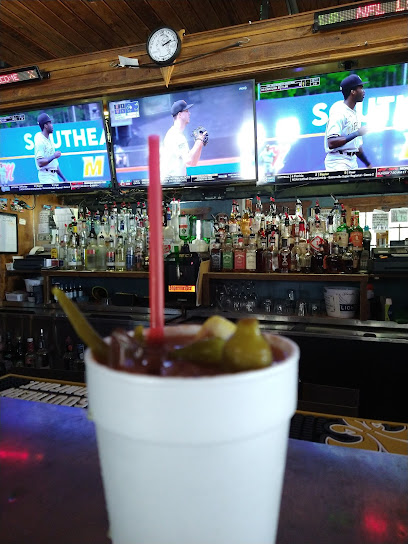
Lil's On the Teche
Experience the vibrant Southern hospitality at Lil's On the Teche, where local culture and refreshing drinks come together in Breaux Bridge.
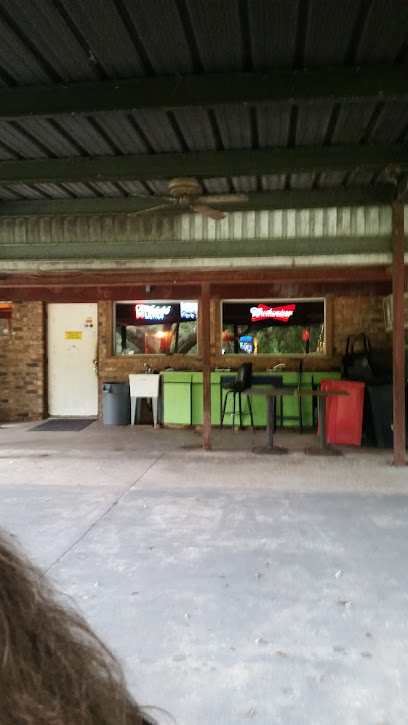
La Poussiere
Discover La Poussiere Bar in Breaux Bridge: A vibrant hub of live music and local flavors, perfect for unwinding and experiencing Southern hospitality.
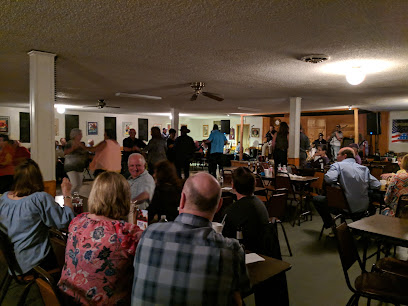
Carabella's Bar
Discover the charm of Carabella's Bar in New Iberia, LA – a perfect blend of local culture, affordable drinks, and a friendly atmosphere.
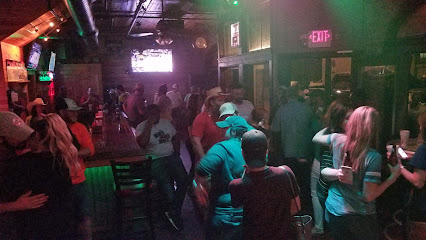
Hoppers IceHouse
Discover the vibrant atmosphere and local flavors at Hoppers IceHouse in Breaux Bridge, where good times and great drinks await.
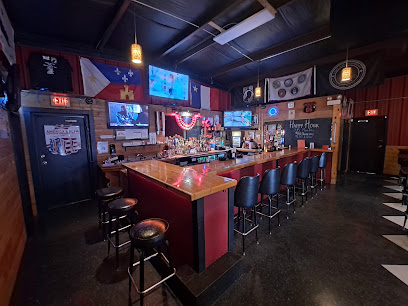
E & E Sports Bar
Discover the lively atmosphere of E & E Sports Bar in New Iberia, where sports, delicious food, and great company come together.
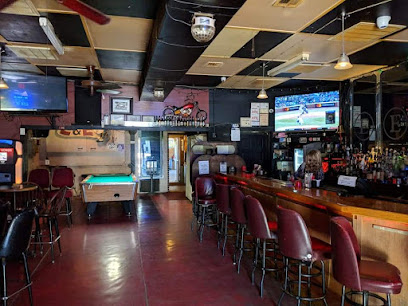
Lucky Luke's
Discover the lively atmosphere of Lucky Luke's, a must-visit bar in Breaux Bridge, Louisiana, offering great drinks and local charm.
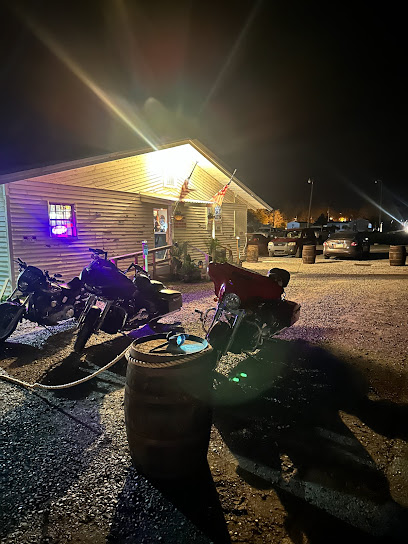
Backstop Bar
Experience Southern hospitality at Backstop Bar in St. Martinville, where every drink is served with a smile in a lively, welcoming atmosphere.
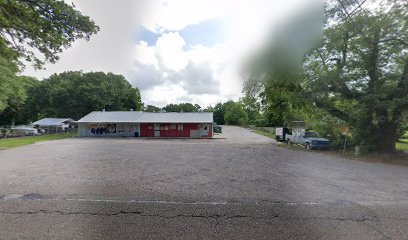
Rac's Sports Bar
Experience the vibrant ambiance and local flavors at Rac's Sports Bar, the premier destination for relaxation and entertainment in Jeanerette, Louisiana.
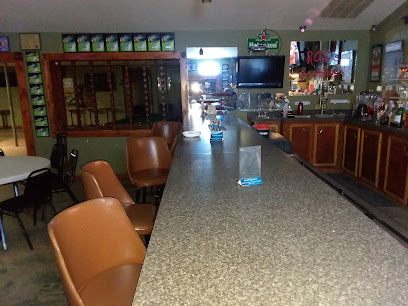
Napoleon's Bar
Experience the vibrant atmosphere and local flavor at Napoleon's Bar in New Iberia, where great drinks and friendly faces await.
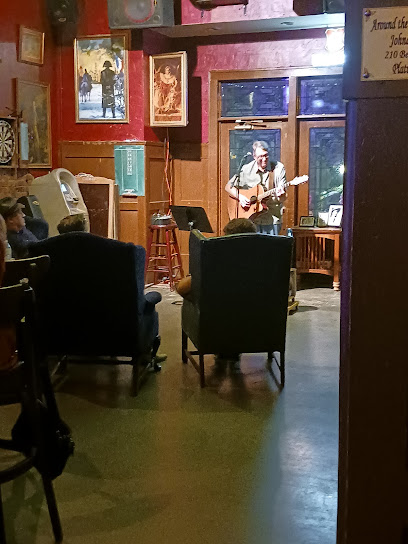
Robert's Lounge Inc
Experience the vibrant nightlife and unique cocktails at Robert's Lounge Inc in St. Martinville, Louisiana, a local favorite for an unforgettable evening.
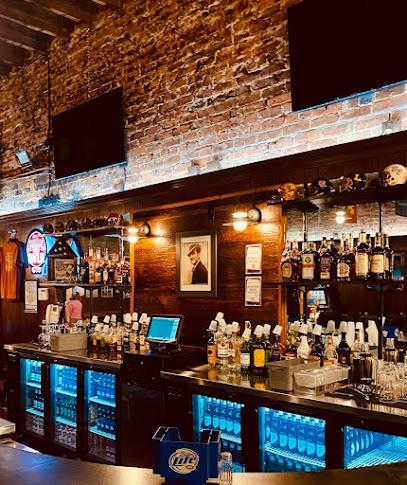
Local Phrases about Bayou Teche
-
- HelloBonjour
[bon-zhoor] - GoodbyeAdieu
[ah-dyoo] - YesOui
[wee] - NoNon
[noh] - Please/You're welcomeS'il vous plaît
[seel voo pleh] - Thank youMerci
[mehr-see] - Excuse me/SorryPardon
[pahr-dohn] - How are you?Comment ça va?
[koh-mohn sah vah] - Fine. And you?Bien. Et toi?
[byen. ay twah] - Do you speak English?Parlez-vous anglais?
[pahr-leh voo ahn-glay] - I don't understandJe ne comprends pas
[zhuh nuh kohm-prahn pah]
- HelloBonjour
-
- I'd like to see the menu, pleaseJe voudrais voir le menu, s'il vous plaît
[zhuh voo-dray vwahr luh meh-nyoo, seel voo pleh] - I don't eat meatJe ne mange pas de viande
[zhuh nuh mahnj pah d' vee-ahnd] - Cheers!Santé!
[sahn-tay] - I would like to pay, pleaseJe voudrais payer, s'il vous plaît
[zhuh voo-dray pay-ay, seel voo pleh]
- I'd like to see the menu, pleaseJe voudrais voir le menu, s'il vous plaît
-
- Help!À l'aide!
[ah layd] - Go away!Va-t'en!
[vah-tahn] - Call the Police!Appelez la police!
[ah-pay-lay lah poh-lees] - Call a doctor!Appelez un médecin!
[ah-pay-lay uh may-deh-sahn] - I'm lostJe suis perdu
[zhuh swee pair-doo] - I'm illJe suis malade
[zhuh swee mah-lahd]
- Help!À l'aide!
-
- I'd like to buy...Je voudrais acheter...
[zhuh voo-dray zheh-sheh] - I'm just lookingJe regarde juste
[zhuh ruh-gahrd zhuhst] - How much is it?Combien ça coûte?
[kohm-byen sah koot] - That's too expensiveC'est trop cher
[say troh shehr] - Can you lower the price?Pouvez-vous baisser le prix?
[poo-vehy voo beh-say luh pree]
- I'd like to buy...Je voudrais acheter...
-
- What time is it?Quelle heure est-il?
[kell er ay-teel] - It's one o'clockIl est une heure
[eel ay oon er] - Half past (10)Dix heures et demie
[dees er ay deh-mee] - MorningMatin
[mah-tan] - AfternoonAprès-midi
[ah-pray mee-dee] - EveningSoir
[swah] - YesterdayHier
[yehr] - TodayAujourd'hui
[oh-zhoor-dwee] - TomorrowDemain
[duh-mahn] - 1Un
[uhn] - 2Deux
[duh] - 3Trois
[twah] - 4Quatre
[katr] - 5Cinq
[sank] - 6Six
[sees] - 7Sept
[set] - 8Huit
[weet] - 9Neuf
[nuf] - 10Dix
[dees]
- What time is it?Quelle heure est-il?
-
- Where's a/the...?Où est...?
[oo ay] - What's the address?Quelle est l'adresse?
[kell ay ladd-rehs] - Can you show me (on the map)?Pouvez-vous me montrer (sur la carte)?
[poo-vehy voo muh mohn-tray (soor lah kart)] - When's the next (bus)?Quand est le prochain (bus)?
[kahn ay luh proh-shahn (boos)] - A ticket (to ....)Un billet (pour ....)
[uhn bee-yay (poor)]
- Where's a/the...?Où est...?
History of Bayou Teche
-
Bayou Teche, a significant waterway in southern Louisiana, stretches approximately 125 miles and flows through several parishes, including St. Landry, St. Martin, Iberia, and St. Mary. Its name is derived from the Chitimacha word for 'snake,' reflecting its winding, serpentine course. The bayou was formed thousands of years ago by the Mississippi River and served as a vital transportation route for Native American tribes long before European settlers arrived.
-
The Chitimacha Tribe has called the Bayou Teche area home for centuries. They developed complex societies and were skilled fishermen and hunters. The bayou was central to their daily life, providing food, water, and transportation. Many artifacts and archaeological sites along the bayou tell the story of the Chitimacha people and their rich cultural heritage.
-
In the mid-18th century, the Acadians, French-speaking settlers from Canada, were expelled by the British during the Great Upheaval. Many found refuge in the Bayou Teche region, where they established new communities. Their arrival significantly influenced the culture and traditions of the area, leading to the development of the unique Cajun culture known today.
-
During the American Civil War, Bayou Teche was the site of several skirmishes between Union and Confederate forces. The Battle of Bayou Teche in April 1863 was part of the larger campaign to control the waterways of Louisiana. The Union's victory at this battle helped to secure their hold over the region and disrupted Confederate supply lines.
-
In the 19th century, Bayou Teche became a major artery for steamboat traffic, facilitating the transport of goods such as sugar, cotton, and timber. The steamboat era brought economic prosperity to the region, leading to the growth of towns and the establishment of plantations along the bayou. The legacy of this period is still visible in the grand antebellum homes and historic buildings that line the waterway.
-
Today, Bayou Teche is a vibrant cultural and ecological treasure. It is part of the Bayou Teche National Wildlife Refuge, which protects the habitat of numerous species, including the endangered Louisiana black bear. The bayou is also a popular destination for kayaking, fishing, and bird-watching. Festivals, such as the Bayou Teche Black Bear Festival, celebrate the natural beauty and cultural heritage of the region, attracting visitors from all over the world.
Bayou Teche Essentials
-
Bayou Teche is located in south-central Louisiana. The nearest major airport is Louis Armstrong New Orleans International Airport (MSY), approximately 150 miles east of the Bayou Teche area. From the airport, you can rent a car or take a bus to reach Bayou Teche. The drive typically takes around 2.5 to 3 hours. Alternatively, Lafayette Regional Airport (LFT) is closer, about 40 miles away, and offers car rental services. Amtrak also provides service to New Iberia, which is a convenient starting point for exploring Bayou Teche.
-
Once in Bayou Teche, having a car is the most convenient way to explore the area. Local car rental services are available in New Iberia and Lafayette. Taxi services and ride-sharing apps like Uber and Lyft are also operational, though availability may be limited in more rural parts. Biking is a popular option for shorter distances, and several local shops offer bike rentals. Public transportation options are limited, so plan accordingly.
-
The official currency is the US Dollar (USD). Credit and debit cards are widely accepted in most restaurants, shops, and hotels. However, it's advisable to carry some cash, especially when visiting smaller towns or rural areas where card payment options may be limited. ATMs are available in larger towns like New Iberia and Morgan City, so it's easy to withdraw cash as needed.
-
Bayou Teche is generally a safe area for tourists. However, as with any travel destination, it is important to exercise common sense precautions. Avoid walking alone at night in unfamiliar areas and keep your belongings secure. Some parts of larger towns like New Iberia and Morgan City have higher crime rates, so stay vigilant, especially after dark. Always lock your car and keep valuables out of sight.
-
In case of an emergency, dial 911 for immediate assistance. Local police stations and medical facilities are available in towns like New Iberia and Morgan City. It is highly recommended to have travel insurance that covers medical emergencies. For minor health issues, pharmacies are available throughout the region and can provide over-the-counter medications.
-
Fashion: Do dress comfortably and appropriately for the weather. Lightweight clothing is suitable for the hot, humid climate, but bring layers for cooler evenings. Avoid overly revealing clothing in more conservative areas. Religion: Do respect local religious customs. Several areas have a strong Catholic influence, so be mindful when visiting churches and religious sites. Public Transport: Do be courteous to fellow passengers if using limited public transport. Don't rely solely on public transportation for your travel needs. Greetings: Do greet locals with a friendly 'Hello' or 'Hi'. Southern hospitality is strong here, so a warm greeting goes a long way. Eating & Drinking: Do try local Cajun and Creole dishes. Don’t refuse food or drink when offered, as it may be considered impolite. Always tip your server, typically 15-20%.
-
To experience Bayou Teche like a local, take time to explore the smaller towns along the bayou, such as Breaux Bridge and St. Martinville. Attend local festivals like the Louisiana Sugar Cane Festival in New Iberia or the Crawfish Festival in Breaux Bridge. Try fishing or kayaking in the bayou for a unique outdoor experience. Engage with locals, who are often very friendly and eager to share stories about the region’s rich cultural heritage. Don’t miss out on live Zydeco or Cajun music performances, often held at local bars and community centers.
Nearby Cities to Bayou Teche
-
Things To Do in Baton Rouge
-
Things To Do in Houma
-
Things To Do in Lake Charles
-
Things To Do in New Orleans
-
Things To Do in Natchez
-
Things To Do in McComb
-
Things To Do in Slidell
-
Things To Do in Port Arthur
-
Things To Do in Beaumont
-
Things To Do in Gulfport
-
Things To Do in Vicksburg
-
Things To Do in Hattiesburg
-
Things To Do in Monroe
-
Things To Do in Biloxi
-
Things To Do in Galveston










